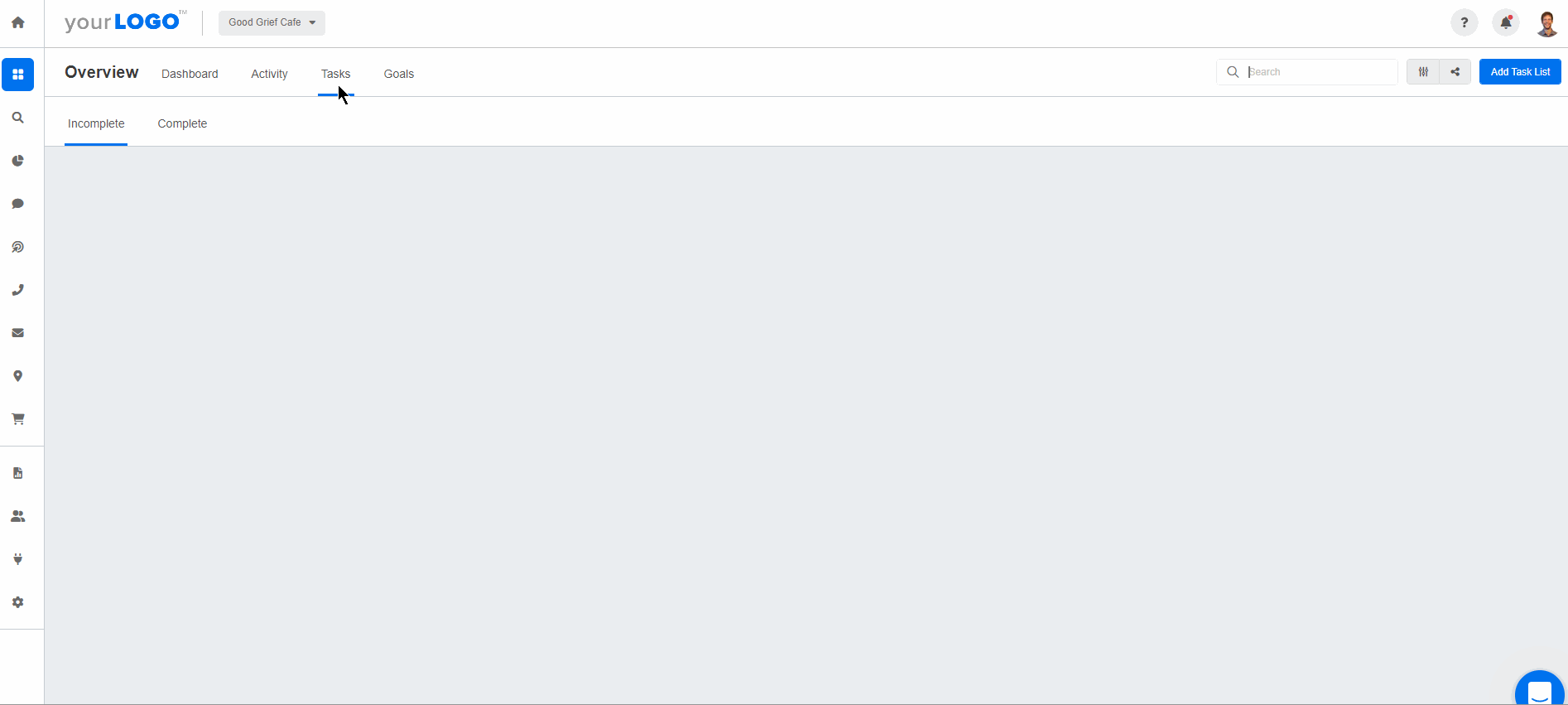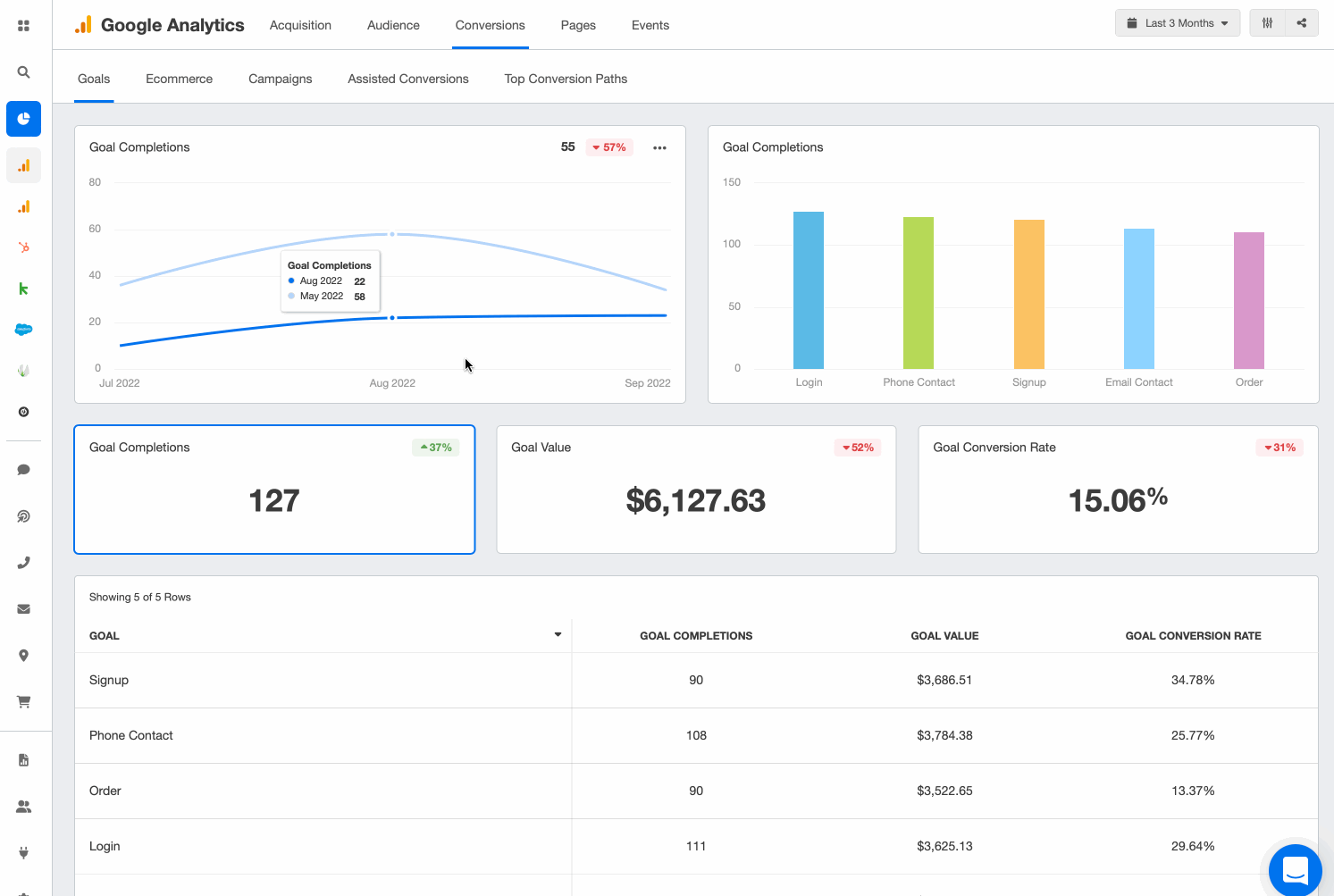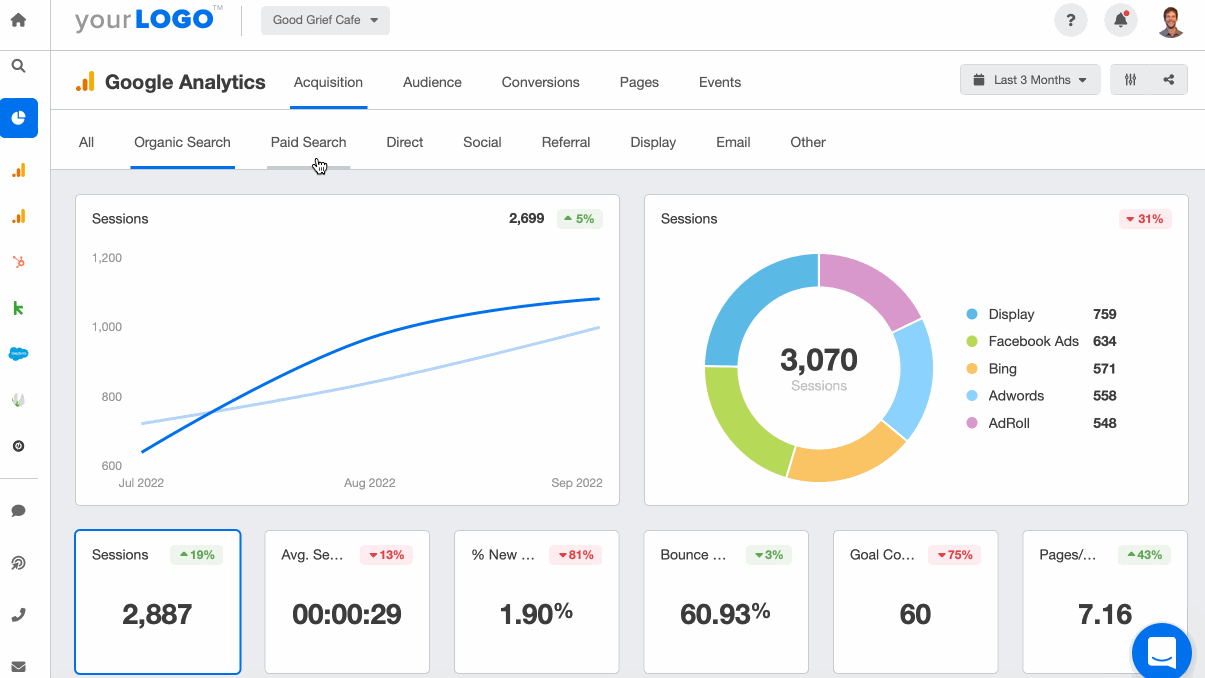Table of Contents
QUICK SUMMARY:
Master deadline management at your marketing agency with theses top strategies. From setting achievable project deadlines to utilizing advanced project management software, learn how to streamline workflows and complete projects on time. These deadline management tips help agencies maintain high-quality output, meet campaign objectives on schedule, and keep clients satisfied.
Deadlines. The word alone is enough to conjure feelings of stress because deadlines are a constant, looming reminder of what we haven’t done yet. But the stress can go even further, evoking memories of panicked late nights, last-minute changes, and burnout.
Marketing is about delivering the best possible work for every client, and that can't happen when staff are tired or burned out.
Michelle van Blerck, Communications Manager, Digital Freak
Top-performing agencies avoid a great deal of that stress and anguish through a solid commitment to deadline management. while handling multiple projects. Thriving agencies have turned the art of time management into a science, juggling competing priorities with data-driven marketing strategies.
The following list of proven tips and battle-tested strategies will help your agency get better at handling and meet deadlines that turn clients into loyal ones. So if your teams are often caught in deadlines, let this article be your lifeline.
Why We All Struggle to Set Realistic Deadlines
Deadlines are something we’ve all struggled with at some point in our lives–whether it was back in school, just a few days ago, or even this article. But why is it so challenging for agencies to set and adhere to deadlines?
Sometimes, we struggle to meet deadlines due to a lack of knowledge or experience about a project, leading us to set unrealistic deadlines, especially if it’s something new or unfamiliar. Other times, it’s because the scope changes or the client asks for multiple revisions, or has some other off-the-wall request your team could never have anticipated.
That’s why setting realistic deadlines is much easier said than done. In order to do it successfully, it requires a solid understanding of your team’s resources, capabilities, and capacity.
What To Do if Your Agency Misses a Deadline?
First and foremost, it’s important to take accountability for missing a deadline. Avoid shifting the blame to outside circumstances, a rookie team member, or insufficient resources and planning. Giving too many excuses can come off as avoiding accountability, which never looks good to clients.
“We are big believers in transparency, and our clients find this approach very refreshing,” adds Claire Aldridge, Digital Marketing Specialist at Victory Digital. “We’ll never bend the truth or cover up a mistake – we’re human after all – and we’ll work twice as hard to get the results we promised. This unique approach is one of the main reasons many of our clients have increase their retainers and recommended us to other business owners.”
With that being said, it’s ok to explain why a deadline was missed, but at the end of the day, the most important thing to your client is they didn’t get it when you said they would and their trust in your agency could be shaken as a result.
So if you do miss a deadline, we recommend acknowledging it happened, explaining why, and then detailing the steps you’re taking to ensure it doesn’t happen again.

Easily assign tasks to your team members within your client reporting platform. Keep all your clients’ KPIs up to date and accessible. Try AgencyAnalytics free for 14 days.
Top 4 Reasons for Missed Deadlines
There are many reasons why agencies struggle with meeting deadlines. Here are a few of the most common:
1. More Complex than Expected
The complexity of a project or task is one of the biggest reasons why setting realistic deadlines is so hard. Or rather, it’s the lack of understanding of how complex a project can be that creates the problem.

Adding to this issue are the many different stakeholders and teams that can be involved in completing a project successfully, and they often have competing priorities. For example, the client might want the project completed ASAP, but the creative team needs time to develop the concept, strategy, design, and copy. But on a strict timeline, something has to give.
Most agencies have a project manager or account manager who’s in charge of keeping everything on track, and they’re the ones who usually assess the scope, determine the client’s expectations, assign the resources and teams needed, and then, ultimately, set the deadlines.
But while the project manager oversees the different aspects of the project until completion, they don’t always know how much time the various subtasks take to finish.
For example, when building a new website for a client, the project manager plans it out and estimates how long it will take the developers to code, how long it will take the copywriters to fill out the pages, how long it takes the graphic designers to create the images, and so on. But if one deadline gets missed, it can cause a cascading effect that affects the whole project and lead to missed deadlines.
2. The Scope Keeps Creeping
Scope creep usually starts with an easy request (that the client will swear is a one-off) that your team is happy to handle, but that can quickly balloon into frequent changes and asks that go far beyond the original agreement.
It’s like that old saying, “If you give a mouse a cookie…. They’ll want a glass of milk”. Or maybe you know it better as “If you give an inch, they’ll take a mile.” Either way, these sayings speak to the desire of clients to maximize the value of your services as much as possible.
It’s a balancing act of trying to keep the client happy while also sticking to the original scope and setting boundaries, but it’s something that’s extremely important for your project managers to do if you want to deliver the project on time.
Sometimes you have to decline to work with a client either from a morale point of view, mental health point of view, or if they’re going to burn out your team. If you throw a toxic client into your account management team, then that creates negativity and stress, and then they start not wanting to come to work or go looking for other jobs. So it can be really damaging.
Oliver Wood, CEO of PWD
3. Lack of Planning, Communication, and Coordination
This point often ties back into project complexity because, without an understanding of the full scope of the project, it’s very challenging to allocate the people, resources, and tools necessary for a project and set the deadlines for completion.
Sometimes during the planning process, we fail to account for everyone that needs to be involved, and then that can be compounded by a failure to communicate with those people once we’ve realized the mistake. But nobody likes to be suddenly assigned tasks or projects at the last minute because someone else forgot to loop them in. Not only will this waste valuable time in getting them up-to-speed, but it will also impact the other work they now have to put on hold because of an urgent ask at the 11th hour.
Another huge obstacle in meeting deadlines is organizational silos, which makes communication and coordination across teams exponentially more challenging. And if you’re a remote agency spread across different time zones, having a plan beforehand is more important than ever if you want to deliver on time (and make sure to specify which time zone the deadline is in!).
Poor communication also comes up in another way, as sometimes project managers need help with setting deadlines or fail to tell the team about them in the first place. Asking the team if they can have it done by sometime next week or as soon as they can, is often counterproductive because, without a firm deadline in place, it’s hard for team members to know what to prioritize.
Overall, a lack of planning and communication are some of the biggest productivity killers for many agencies, and you should avoid them at all costs.
Read on 7 Manager Meetings Your Agency Should Know
4. Are Your Workflows and Processes Slowing You Down?
Slow or inefficient workflows and processes can be a huge limiting factor in your agency’s ability to meet your deadlines on time. What makes these inefficiencies even more insidious is how hard they are to detect sometimes, especially if your agency has a more traditional or conservative culture where questioning the way things are or have always been done isn’t done (or worse, discouraged).
This means inefficient workflows and processes can be an invisible killer regarding your agency’s ability to meet its deadlines.
Sometimes, the processes and workflows at your agency are so ingrained that they feel like second nature, and your team follows them unquestioningly, but that can be a huge disadvantage because it means you’re no longer looking at them critically for ways to improve and get better.
With the breakneck speed of digital marketing, what worked five years ago (or even months or weeks ago) may already be obsolete.

So how fast can your agency adapt? Don’t be like the frog who doesn’t realize they are being boiled (by inefficient workflows) until it’s too late!
Proven Success Strategies for Managing Multiple Projects and Deadlines
Now that we’ve gone over some of the most common reasons why agencies struggle to meet deadlines, here are some strategies and agency management tips to fight that and ensure your agency doesn’t fall victim to a culture of stress, burnout, and overdue deliverables.
1. Consider the Capabilities and Capacity of Your Team
In the eagerness to sign a new client (or keep a current client happy), it’s easy to overpromise or agree to do something in the heat of the moment, but that can put a lot of extra pressure on the team. One of the best ways to avoid overworking your team (and risking a missed deadline) is to consult with them beforehand to determine their current workload and see if they can even take on a new project. In some situations, deadline management comes down to finding that perfect amount of clients or considering hiring more employees to scale growth.
Playing to people strengths makes them happier. I'm happier, and everyone is just happy, and you know, Happy Staff, you know, deliver great great results and great work for clients. So clients happy. So it's a win win for everyone.
Joshua George, Founder of ClickSlice
This stands in stark contrast to the typical top-down approach at many agencies, and it can go a long way to foster an agency culture that makes employees stay because it makes them feel heard and gives them more agency over the work they do. And when push comes to shove, you might be surprised at how your team is willing to go that extra mile in order to get something across the finish line on schedule.
2. Clear Communication is Key
Communication must be clear across the team, and everyone should be kept up-to-date on the progress and what still needs to be done. Let people know as early as possible what is needed from them and when so they have time to plan their work schedules accordingly.
Consult with team leads beforehand to understand better who needs to be involved, and ask how long each task will take to create more accurate and reasonable deadlines.

Keep everyone on the same page with visual data dashboards that update in real-time. Try out a host of templates on AgencyAnalytics. It’s free for 14 days!
Real-time dashboards are great for those more savvy business owners or decision-makers who understand the need to look longitudinally at their marketing investment. The transparency always helps to strengthen long-term relationships.
Bodie Czeladka, Director of Dilate Digital
Also, provide as much background info as possible (such as briefs, positioning statements, branding guidelines, keywords, writing style guidelines, templates, examples, inspiration, and more) so everyone is on the same page and aligned with the overall project goals. This will also have the added benefit of cutting down on the revision process, as everyone will be aligned from the start.
3. Set Clear Boundaries
Earlier, we warned against the perils of scope creep. To prevent this from happening, project managers should feel comfortable pushing back if clients are asking for too much–but be careful not to give off the wrong impression!
80% of your problems definitely come from 20% of your clients. And if you aren’t careful they’ll fill up 80% of your time. That’s why you have to be diligent and ruthless about setting boundaries.
Jens Rhoades, Owner, Floodlight SEO
Instead, try to find other ways to add value that won’t contribute to scope creep or missed deadlines (ex. “That’s a great suggestion for the next step in this project, but that’s outside of the current scope at the moment. We can discuss that once this current project wraps up”).
Many clients just want to feel heard, so if you address their feedback or requests in an understanding way that makes it feel like you’re working on this project together, it will help soften the blow of you sticking to your boundaries without it feeling like you’re denying their request, even if you are. It’s not necessarily the message but how you say it.
4. Streamline Your Workflows
Look for bottlenecks, ambiguous roles and responsibilities, and other inefficiencies that are slowing down your ability to deliver on time. A common bottleneck for multiple projects is the approval process because it involves way too many people or it’s unclear whose approval you need and when, so do your best to figure out the best times to loop people in for approval and try to eliminate the back-and-forth as much as possible.
For example, if one of your deliverables involves a 15-step approval process with assign tasks to dozens of people before it’s sent off to the client, look at how and where you can optimize the process to improve it and whether there are any redundancies that can be removed.
Having a streamlined reporting service became paramount to us. Before, it was convoluted, not in one spot, and hard for clients to interpret. Not having that one-to-one relationship with a client means you have to have something there to keep the communication.
Oliver Wood, CEO of PWD
Also, another great tip is to ensure your workflows and processes are clear and easy to follow for everyone involved. This will help save you valuable time on project onboarding and briefing and allow your team to spend more time on actually getting the work done.
Additionally, workflow and AI tools make automating your marketing processes easier than ever, and they are definitely worth checking out to save you even more time.
5. Use a Project Management Platform that Works for Everyone
There are many different task management and productivity tools on the market, but the most valuable one is the one your entire team can and will use. This also depends on the size of your agency and the different departments it has. Still, many agencies have a more technical development team and the creative team, and the key to a great project management platform is getting all departments to buy in wholeheartedly.
Don’t be the type of agency that uses a project management platform that their development team loves but the creatives hate, or vice versa. That defeats the purpose of using the platform in the first place and simultaneously costs you money. The right project management platform is supposed to bring your team together and help tear down any organizational silos while ensuring everyone is in the loop and working together towards a common goal.
6. Give Yourself a Buffer When Setting Deadlines
Unforeseen circumstances and events can and will happen. That’s just life. But to account for that, we highly recommend giving yourself a buffer of 1-2 days when setting your deadlines. That way, you bake some flexibility into your processes, and if something is a little behind, you’ll have some extra padding to ensure you don’t miss the real, hard deadline.
To think about it another way, every friend group has that one friend who’s chronically late. To ensure they show up on time, some groups have taken extra measures such as giving them an earlier time to meet up than everyone else to account for that.
Adding a buffer between your deadlines is kind of like that, except you’re not calling anyone out for being late. You’re just adding some leeway with your deadlines for extra peace of mind. Setting deadlines can also change due to the influx of new clients and your employees' capability to handle multiple projects. Meeting deadlines is able to understand every reason that can cause bottlenecks.
Turn Deadlines Into a Lifeline
It’s not enough for agency owners and leaders to give their teams a deadline and then leave them to figure it out for themselves. True deadline management begins from the top, and agency owners overlook it at their own peril because it makes up such a huge part of an agency’s culture.
Your approach to time and deadline management could be the difference between your agency being known for a culture of overwork, high turnover, and low morale or having a reputation for its great work-life balance, high retention, and company culture. And which would you rather be?
Retention is the ultimate sign of client happiness. This, therefore, is a lag indicator of your culture, your systems, your overall operations, and your ability to generate results.
Tom Parker, Dilate Digital
We mentioned using a project management platform that your entire agency can use. There are also platforms out there that not only help you track your projects internally but also help you communicate with clients to the point where they can help you manage your entire agency! AgencyAnalytics’ all-in-one agency reporting tool can do just that and help you maximize your agency’s productivity like never before.

Win back more billable hours with AgencyAnalytics. Create client reports in minutes. Start your free 14-day trial today.

Written by
Michael is a Vancouver-based writer with over a decades’ experience in digital marketing. He specializes in distilling complex topics into relatable and engaging content.
Read more posts by Michael OkadaSee how 7,000+ marketing agencies help clients win
Free 14-day trial. No credit card required.






